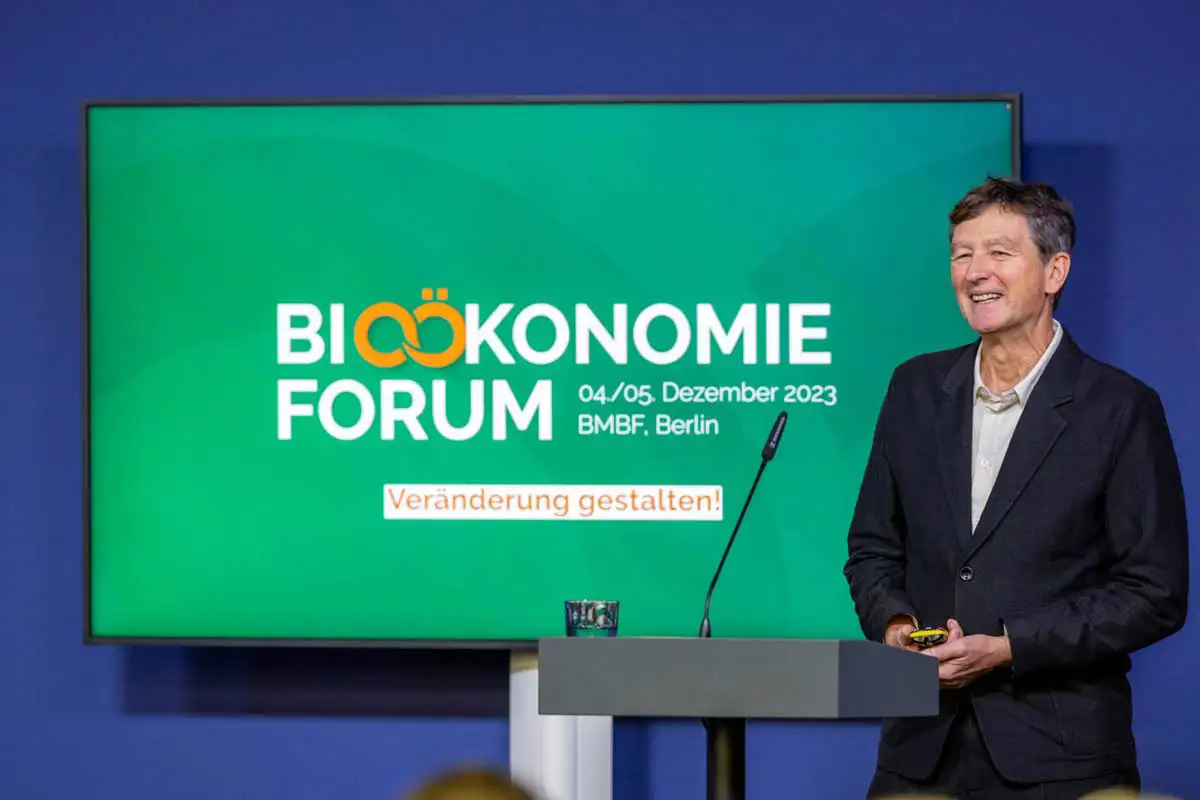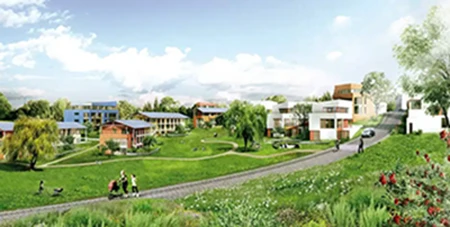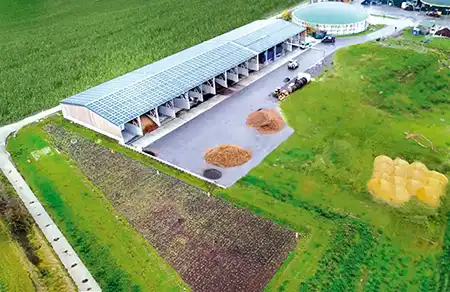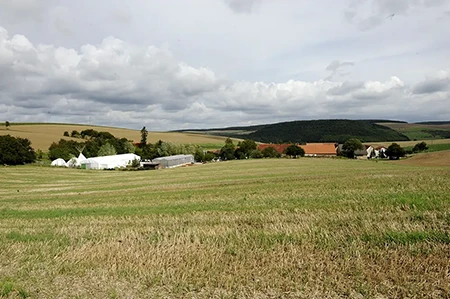
Regeneration
Die Natur kennt keinen Abfall und kann nur deshalb verschwenderisch erscheinen. In ihr bewegt sich alles in einem ständigen Kreislauf, aus dem nichts verloren geht. Das Fundament der ricion AG basiert auf den ganzheitlichen Prinzipien natürlicher Kreisläufe.
Die »End-of-Pipe«-Mentalität, die »unserem« blauen Planeten seit Beginn der Industrialisierung zugemutet wird, ist weder ökologisch, sozial noch ökonomisch sinnvoll. Es ist an der Zeit, neue Wege zu gehen. »Die Welt ein bisschen besser machen« – das ist uns zu wenig! Privatwirtschaftlich organisiert verfolgen wir gleichzeitig gemeinwohlorientierte Ziele und wollen mit unserer Arbeit nicht »nur« lindern, sondern regenerieren. Um eine echte »Regeneration« zu erreichen, streben wir im Sinne einer umfassenden Bioökonomie ein ganzheitliches Stoffstrommanagement in den Bereichen Boden, Wasser, biogene Reststoffe, regenerative Landwirtschaft und Landnutzung an.
ricion hat naturbasierte, effiziente und Ressourcen schonende Schlüsseltechnologien und Verfahren zur Regeneration entwickelt. Mit der legendären »Terra Preta« und der damit verbundenen Karbonisierung, den Hochleistungsbodenfiltern und unserem kombinierten System ricionoase21 setzen wir Projekte einer zukunftsweisenden blau-grünen Infrastruktur im Klima-, Umwelt- und Ressourcenschutz um.
»Invest in nature, it’s forever!«
ricion-Leuchtturmprojekt oase21
Die Gemeinde Riegel am Kaiserstuhl am Rande der Universitätsstadt Freiburg steht unter starkem Siedlungsdruck. Aufgrund der geringen Flächenverfügbarkeit für weitere Baugebiete sowie aufgrund der großen Nachfrage nach Wohnraum hat der Gemeinderat beschlossen auf einer Gesamtgröße von 7 Hektar neue zukunftsweisende Planungs- und Gestaltungsansätze umzusetzen. Auf Basis einer Perspektivenwerkstatt mit Bürger*innen entstand ein ambitioniertes Quartiersentwicklungskonzept, welches anschließend von engagierten Fachplanungsbüros vertieft und zu einem ganzheitlichen Entwicklungsansatz zusammengeführt wurde.
ricion kommt dabei eine Schlüsselrolle zu, nämlich die Entwicklung und planerische Umsetzung der Kernthemen einer blau-grünen Infrastruktur. Dazu gehört ein zukunftsweisendes Niederschlagswassermanagement im Sinne des „Schwammstadtprinzips“, die getrennte Erfassung und Behandlung von Grau- und Schwarzwasser, eine Grauwasser-Recyclinganlage mit Nutzwasserpflanzengewächshaus sowie eine Energiezentrale mit Karbonisierung, Nahwärmenetz und Terra Preta-Produktion. Dabei werden vielfältige Synergien und regionale Wertschöpfungsmodelle erzeugt, welche eine gesamtsystemische Quartiersentwicklung im Sinne von Kreislaufwirtschaft, Bioökonomie und nationaler Wasserstrategie realisieren.
NEWS
Der erste Schritt
Wenn Sie detaillierte Informationen zu unseren Technologien und Anlagenkonzepten für Kommunen, Unternehmen, Finanzierungsmöglichkeiten, sowie unseren innovativen Produkten in den Bereichen Landwirtschaft und Urbanes Grün erfahren möchten, dann melden Sie Sich telefonisch oder per E-Mail.



